Biohydrogen: affordable, green and yet overlooked
Brussels 14/06/23 – The European Biogas Association, in collaboration with biogas experts, is launching a white paper on the sustainability, affordability and accessibility of biohydrogen to support its production and use in Europe. Alongside biogas and biomethane, biohydrogen will be key to fully reach the energy needs of various sectors and support Europe’s climate mitigation strategies. “Because of its unique ability to remove carbon from the atmosphere, biohydrogen is well placed to help sectors with limited decarbonisation options achieve carbon neutrality. Besides, biogas producers are keen to diversify their outputs and further increase the flexibility of anaerobic digestion plants.” highlights Marina Pasteris, EBA Technical and Project Officer.
Hydrogen is expected to play an important role in the effort to reach climate neutrality by 2050, as recognised by the 2020 Hydrogen Strategy. Yet, one of the main challenges facing the hydrogen sector is to decarbonise its production. Over 95% of European hydrogen production capacity in 2020 was derived from fossil fuels whilst green hydrogen production represented less than 1%.
Biohydrogen, a type of green hydrogen derived or produced from biogases and biomass, can support the decarbonisation of Europe’s hydrogen production. In contrast to the other forms of hydrogen, biohydrogen can be zero or even carbon negative if it is obtained from feedstocks such as wastes and manure. In addition, depending on the biohydrogen technology, biohydrogen production can generate co-products such as pure biogenic carbon dioxide, digestate or biochar. This process further supports the decarbonisation of industries, contributing to the circular economy and helping to permanently store carbon in the soil.
Biohydrogen can be generated from domestically produced biogases, reducing the need to import gas and directly improving both Europe’s security of supply and energy independence. For instance, in rural areas where there could be a future need for hydrogen, biohydrogen can be produced from raw biogas or biomethane to provide a local source of green energy. This also helps to reduce exposure to volatile natural gas prices.
In addition to its environmental benefits, biohydrogen can be obtained at a lower production cost than other types of green hydrogen. Biohydrogen production cost today ranges from EUR 1.15 to EUR 9.65/kg H2, whilst the production cost of green hydrogen from electrolysis fluctuates between EUR 2.51 and EUR 11.94/kg H2.
According to Giulia Cancian, EBA Secretary General, “As the European Union moves toward the establishment of a single market for energy, it is at a critical point in the development of laws governing the future of biohydrogen. Biohydrogen is an innovative product, and the regulatory framework lacks drivers to reach commercial maturity. The targets set under REDIII for industry and transport focus on hydrogen from RFNBOs, actively discriminating against biohydrogen. The directive does not feature to date an inclusive definition of renewable hydrogen covering all possible production pathways, such as raw biogas and biomethane steam reforming. “
- Download press release
- Download white paper “Decarbonising Europe’s hydrogen production with biohydrogen”
Watch EBA video series “Decarbonising Europe’s hydrogen production with biohydrogen”
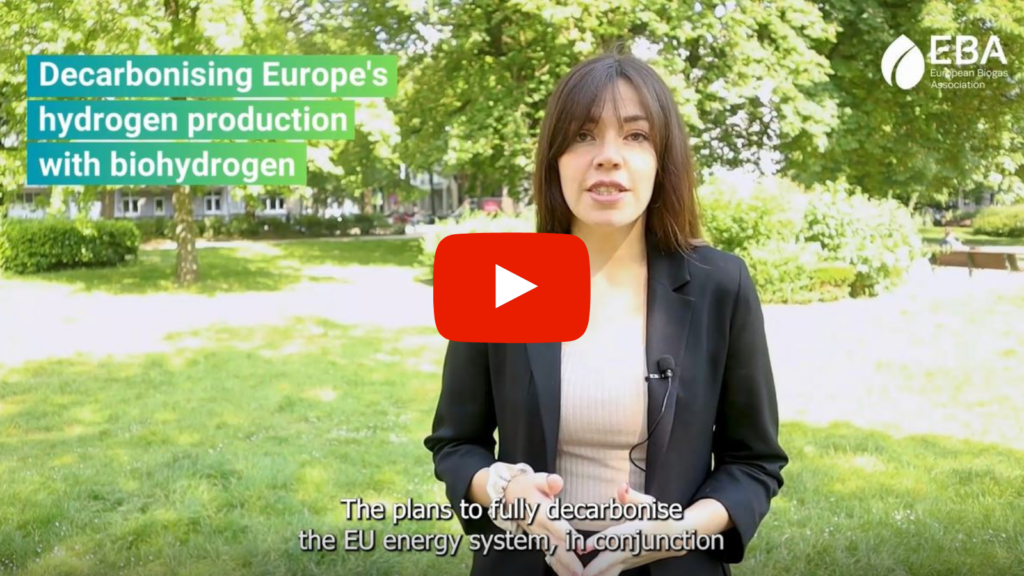
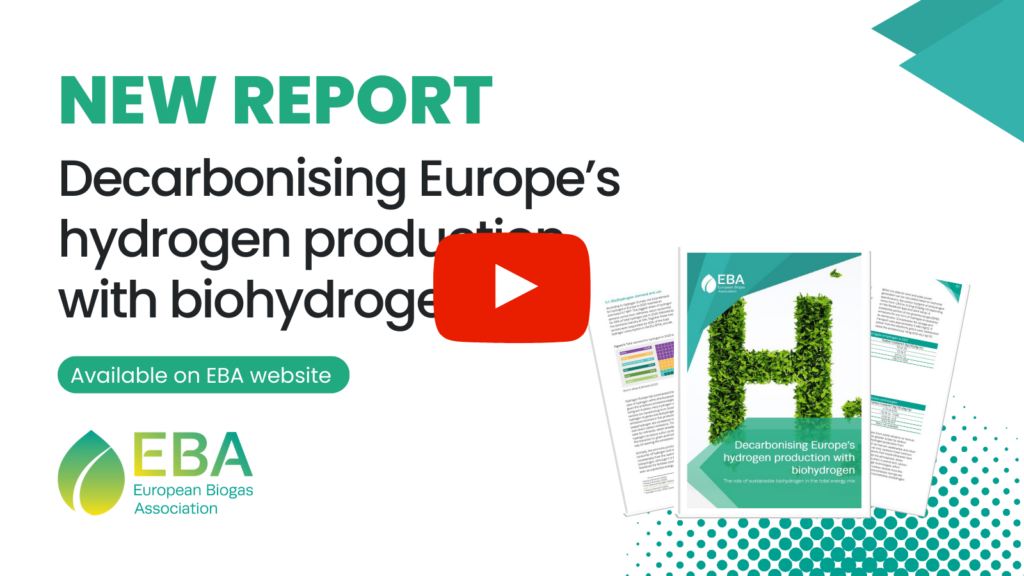
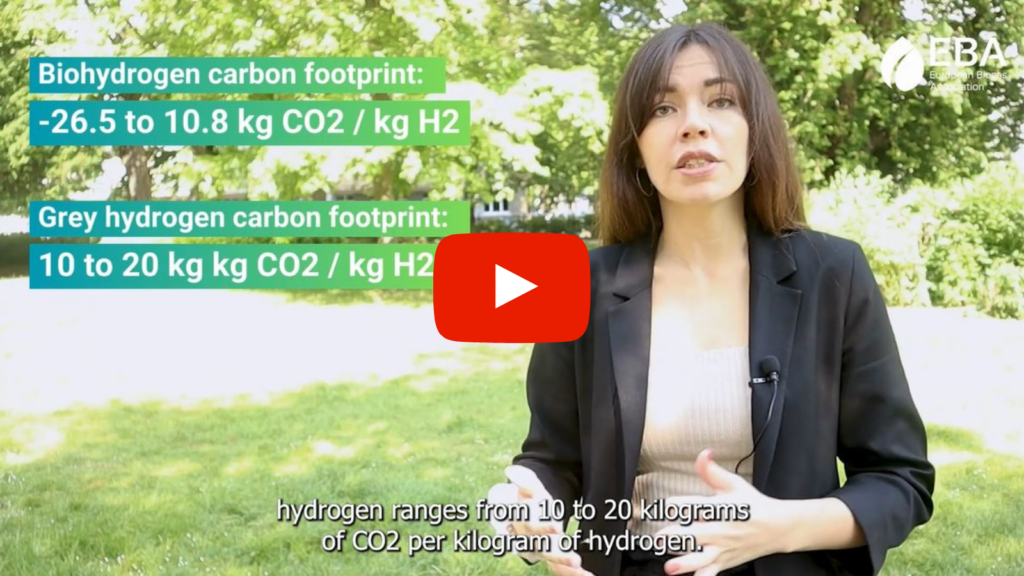
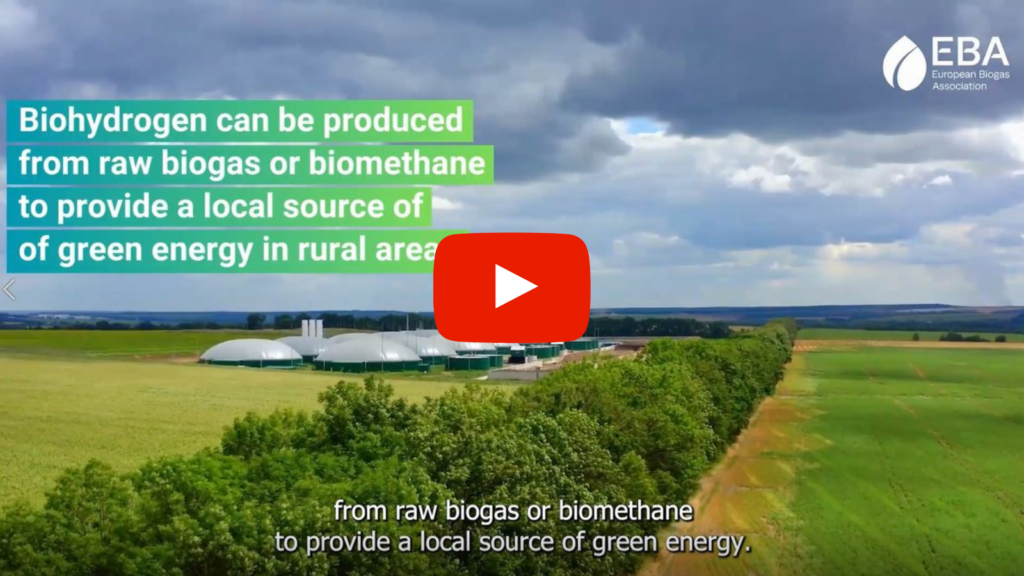
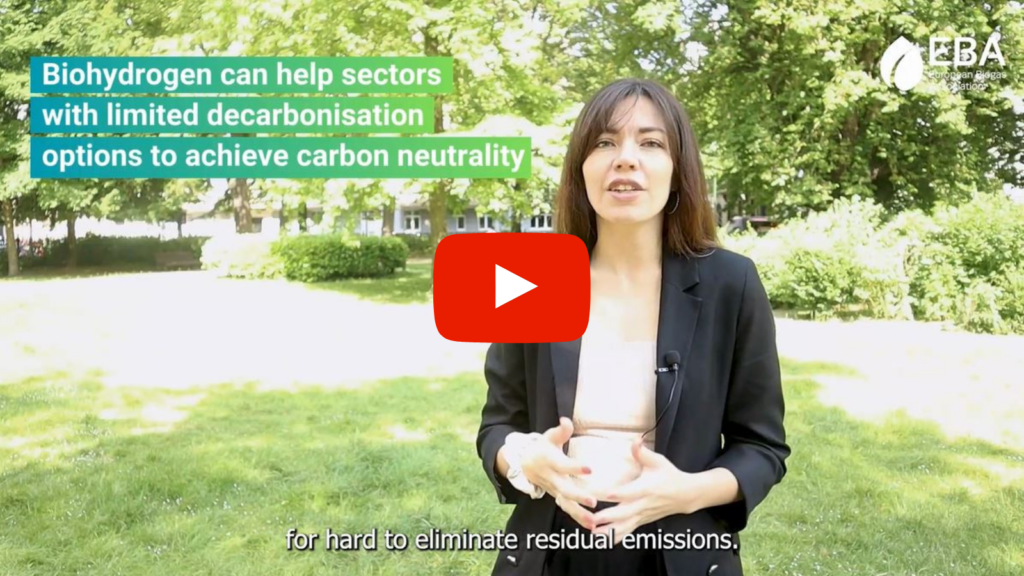
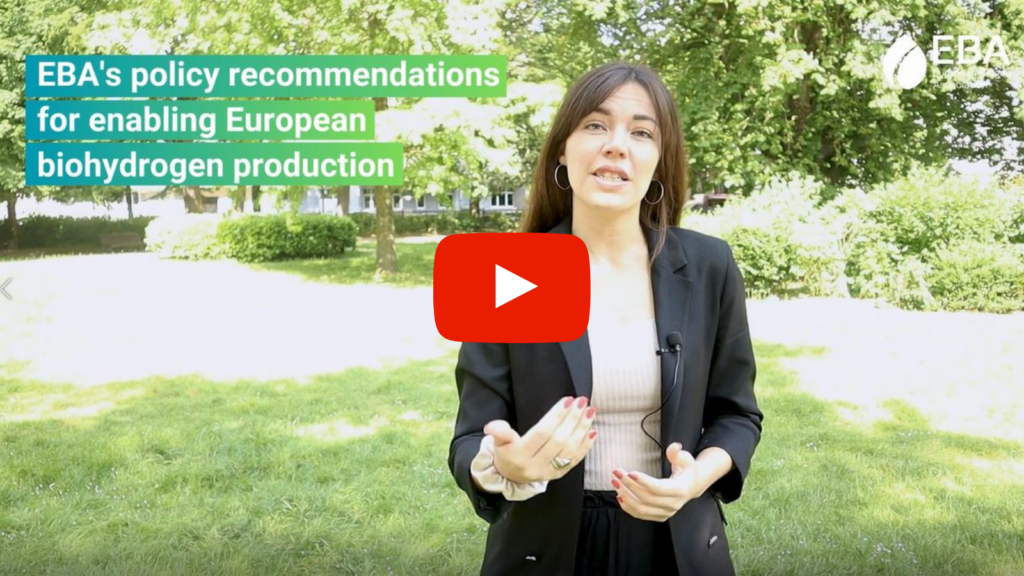
Contact
- Fanny Lamon – EBA Communications Officer lamon@europeanbiogas.eu
- Mieke Decorte – EBA Technical and Projects Manager decorte@europeanbiogas.eu





